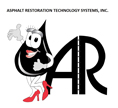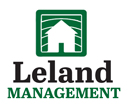
Be Prepared!
Published June 2023

Editor’s Note: Whether it’s preparing for an increase in the cost of materials, bracing for natural disasters (including hurricanes), or tightening up your community’s security, multiple service providers have shared brief best practices to help your community weather multiple challenges.
 Paying Twice Isn’t What Anyone Signed Up For
Paying Twice Isn’t What Anyone Signed Up For
By Connie Lorenz
The asphalt industry is in an unprecedented situation. Trucker, aggregate, DEF (diesel exhaust fluid), and employee shortages have increased costs so much that they create a financial shortfall as a lot of communities aren’t prepared for the higher prices that we are now seeing. Proposals from a year ago are coming in at double the price, and this has communities scrambling. Decisions are being made choosing price over quality. You get what you pay for, and communities choosing this path are being let down. Read your proposals and contracts because if it sounds too good to be true, it’s because it is! All contractors are experiencing these increases, so if one price is significantly lower than others, you can count on shortcuts being taken to ensure profits. For asphalt, it is simple—shortcuts = shorter lifespans = faster replacement. Pay now or pay later, but paying twice isn’t what anyone signed up for!
Connie Lorenz is president of Asphalt Restoration Technology Systems. For more information, call 800-254-4732 or visit www.asphaltnews.com.
 Submitting an SBA Loan Application
Submitting an SBA Loan Application
By Joseph Arena, Esq.
In recent years, when the federal government has offered assistance to Florida community associations, it has primarily done so through the availability of U.S. Small Business Administration (SBA) loans. In response to natural disasters such as Hurricane Ian (2022), SBA loans have been made available to repair and replace disaster-damaged property (physical disaster loans) as well as to meet financial obligations that cannot be met as a direct result of the disaster (economic injury disaster loans). When such loans become available and are needed, the earlier an association submits a loan application, the earlier the application will be processed. Information that a community association will want to have readily available in connection with submitting an SBA loan application includes the following:
- Copies of tax returns, recent budgets, and the association’s employer identification number (EIN)
- Rosters of owners and board members
- Insurance policy information, including the declaration pages for all policies
- Address information for common areas sufficient to describe where damage occurred
- The number of association employees
- The date the association was established
- Copies of the association’s governing documents, including amendments, may also be handy to have on hand.
Joseph Arena, Esq., is senior attorney for Becker. For more information, visit beckerlawyers.com.
 Staying Connected Through the Storm
Staying Connected Through the Storm
By Keith Minarik
Fiber internet is an increasingly popular choice for many people because of its fast and reliable connection speeds. But did you know that fiber internet can also be extremely beneficial during a hurricane?
Unlike traditional copper or cable internet services, fiber- optic cables are not affected by electrical interference or electromagnetic fields. This means that they are incredibly resistant to the impact of natural disasters, such as hurricanes. Fiber optic cables are usually buried underground, making them less susceptible to damage from high winds or flooding.
Fiber internet also has faster download/upload speeds and greater bandwidth than traditional internet services, which means that during a hurricane you can stay connected with loved ones, access critical information, keep your security and smart devices online, and even work remotely without worrying about slow or intermittent internet speeds. This is especially important during times of emergency when communication is crucial.
Keith Minarik is vice president of sales with Blue Stream Fiber. To find out more about how Blue Stream Fiber can keep you connected during hurricane season, visit www.bluestreamfiber.com/hurricane-plan/.
 Are You Prepared to Weather Hurricane Season?
Are You Prepared to Weather Hurricane Season?
By Castle Group
As hurricane season has arrived, it’s natural to feel concerned about the potential dangers of these storms. Here are some tips to ensure you are prepared and safe.
- Stay informed—Keep an eye on the news and weather reports to stay up to date on the storm’s progress.
- Stock up on supplies—Ensure you have plenty of food, water, and other essentials. Remember to include items like batteries and flashlights.
- Secure your property—Board up windows, and secure loose items like patio furniture. This can help prevent damage and keep you and your family safe.
- Have a plan—Make sure you have a plan for what to do in an emergency.
Time-tested methods are at the forefront of our hurricane preparedness procedures at Castle Group.
To learn more about how Castle Group can serve your community, request a proposal at www.castlegroup.com/request-a-proposal/.
 Hurricane Preparedness Plans are an Essential Part of Construction Contracts
Hurricane Preparedness Plans are an Essential Part of Construction Contracts
By Suly Encalada
Communities with construction projects underway face extra safety and financial risks during hurricane season. That’s why DSS Condo includes detailed, written hurricane preparedness plans in all construction contracts, so all project participants know exactly what to do in the event of a major storm.
The cost of demobilizing and then remobilizing a construction project can be significant, so we negotiate those fees in advance and add specific cost contingencies to the project’s budget.
If a project is located in the storm forecast cone four days before landfall, we recommend that the association’s board order the project’s demobilization, which includes the following: removing all
barrier nets, ropes, and power cords; installing weather walls where hurricane shutters have been removed; securing swing stage and scaffolding systems; clearing all materials and debris from the roof; emptying the dumpsters; halting deliveries; and making a thorough clean-up so no construction materials become airborne.
Once the storm passes, we work with the contractor to repair any damage and remobilize the job site so work can resume. It can be a big job, but it’s necessary to safeguard residents, construction workers, and the building.
Suly Encalada is the director of business development for DSS Condo, South Florida’s leading owners’ representative firm specializing in association restoration projects. She can be reached at suly@dsscondo.com.
 Reflect Upon the Lessons Learned
Reflect Upon the Lessons Learned
By Anthony Emma, Jr.
With hurricane season here, it’s an important time for associations to reflect upon the lessons learned from the catastrophic damage of Hurricane Ian. Three common financial issues emerged.
- Insurance Coverages—It’s not enough to ensure that skyrocketing premiums are paid. Boards must understand the various deductible levels and coverage limitations of each policy to truly grasp the potential financial impact of a storm.
- Hurricane Reserve Funds—Unfortunately, most associations insufficiently funded reserves for storm-related damages, particularly regarding insurance deductibles and coverage amounts such as the flood insurance cap of $500,000. Reserves need to be funded to offset more than just debris clean-up and removal.
- Access to Emergency Funds—Similarly, many associations were forced to delay vital and time-sensitive repairs while awaiting funds from insurance settlements and/or special assessments. Associations need to consider a bank line of credit annually to serve as an immediate source of funds.
Planning for all of the potential outcomes from a hurricane may be an impossible task, but constructing a financial plan to manage the risks is within reach.
Anthony Emma, Jr., is CEO/Managing Partner of Element Financial Solutions. To learn more about Element, please visit our website at ElementFinancialSolutions.com or email aemma@ElementFinancialSolutions.com.
 Smart Ways HOAs Can Plan for the Unexpected
Smart Ways HOAs Can Plan for the Unexpected
By Erin Sweeney
Reserve funding is an important financial activity for homeowners’ associations (HOAs). Working with an experienced financial provider, your community can smartly manage reserve funds for future, planned improvements.
But what if the “unexpected” happens, such as first-responder emergencies and natural disasters? Here are three simple steps HOAs can take to plan for the unexpected and help limit financial impact to the community.
- Meet with your insurance broker annually to review and understand what is covered in your insurance policies.
- Take photos of your community, including equipment and other assets, which help if you have to file claims.
- At the same time, earmark a portion of reserves for emergency repairs, which are generally more expensive than planned maintenance.
In times of crisis community managers wear many hats. As the primary point of contact for HOA members, first responders, government officials, and insurance adjusters, also consider the ways you’d manage different emergency situations and develop a standard procedure for each.
Erin Sweeney is a director, regional sales manager at First Citizens Bank. For more information, visit firstcitizens.com/CAB.
The views and opinions expressed in this article are those of the author and do not necessarily reflect the views of First Citizens Bank.
 Association Emergency Powers
Association Emergency Powers
How Are They Triggered, and Are They Available to All Condominium Associations?
By Justin Smith, Esq.
While formulating a comprehensive emergency or disaster preparedness plan is key when a natural disaster is forecast, condominium association managers and boards should also keep in mind what, if any, emergency powers may be available. If not specifically prohibited by an association’s governing documents, Fla. Stat. §718.1265 permits an association to exercise emergency powers in response to damage or injury in connection with an emergency for which a state of emergency is declared in the condominium’s locale. The key to implementing these statutory emergency powers is to listen to government and public health officials as emergency powers are available only upon the calling of a state of emergency by the governor of the State of Florida. Once it is called, the directives of public health officials will determine whether the condominium property must be evacuated or can be safely inhabited, accessed, or occupied. A complete list of emergency powers is provided in Fla. Stat. §718.1265. To determine if such powers—or others—are available to your association, legal counsel should be consulted to analyze your association’s governing documents and the law incorporated into such documents.
Justin Smith is a senior associate at Haber Law. For more information, call 305-379-2400 or visit www.haber.law.
 Communication Is Key When Preparing for Storm Season
Communication Is Key When Preparing for Storm Season
By Marcy Kravit, CMCA, AMS, PCAM, CFCAM
Disaster preparedness and communication with your community via your internet provider are important aspects of ensuring best practices for the safety and well-being of your residents. It is important your community is prepared in the face of natural disasters, emergencies, and other crises.
Here are a few things to consider:
- Know your provider’s emergency procedures.
- Keep contact information up to date.
- Review your insurance coverage.
- Prepare for power outages.
- Review structural safety measures.
- Stay informed.
- Establish a communication plan.
Your internet provider can be a valuable resource for communicating with your community during an emergency through customized channels and text and email alerts. Be sure to choose a provider that can communicate before, during, and after disaster strikes to provide your community with the support it needs.
Overall, effective communication and collaboration with your internet and television provider are essential for disaster preparedness and safety and security issues for your community.
Marcy Kravit, CMCA, AMS, PCAM, CFCAM, is director of community association relations with Hotwire Communications which has received multiple Stevie Awards for Customer Service. For more information, visit www.hotwirecommunications.com.
 Five Ways to Safeguard Your Electrical Components from Natural Disaster
Five Ways to Safeguard Your Electrical Components from Natural Disaster
By Tom White
While we don’t want to think about hurricanes, tornados, thunderstorms, or power surges, we need to be prepared for all eventualities. Here are five brief tips for protecting the electrical devices in your building and keeping your residents safe.
- Surge protection is something every electrical system should have. Florida is the lightning capital of the country, but remember, it is not always the cause of a surge. Utility spikes can destroy hundreds of electrical components in an instant. A surge protector should be installed on either every individual electrical panel or at the least on the incoming main. It is much cheaper and easier to replace this device after a surge than all your components.
- Lightning protection systems should be installed on every building to help reduce or eliminate the possibly of damage due to a lightning strike. The surge suppressor is your backup plan to this system as a significant lightning strike might fry the electrical system of your building.
- Have backup generators in place. A backup generator is one of the easiest ways to provide power when there is an electrical outage.
- Keep trees near power lines trimmed. This reduces the risk of branches falling and damaging your electrical lines and delicate equipment.
- Develop a disaster response plan. Planning ahead ensures everything runs smoothly in an emergency. Understand what needs to be done if the electricity goes off in your building—what to tell residents, how to get that message out, and who needs to take responsibility.
Tom White is the senior vice president–electrical services group at Hypower. For more information or to get a quote, email service@hypowerinc.com or visit www.hypowerinc.com.
 Is Your Property Hurricane Ready?
Is Your Property Hurricane Ready?
By Erika Carruth
With hurricane season starting June 1, here are five easy ways to ensure your property is prepared:
Check Generators—Perform a “checkup” on your generators and service them to ensure that they are operational.
Seal Windows and Doors—Take time to review the seals around your windows and doors; they deteriorate over time, which leaves an opening for high winds and rain to penetrate the building.
Take Inventory—Survey your property, documenting and photographing the condition of your building and surroundings as a point of reference should damage result from a storm.
Review Insurance—Review your insurance policy to ensure that your plan is current and provides the appropriate amount of coverage.
Hire an Expert—Keystone Engineering offers pre-hurricane preliminary roof inspections. During the inspection, skilled technicians evaluate your roof to identify any visible vulnerabilities that have the potential to result in water damage or failure during a storm event.
To learn more about the pre-hurricane inspections and Keystone Engineering’s consulting services, visit www.KeystoneEngineeringPE.com.
 Preparing for a Complex Hurricane Season Following Hurricane Ian
Preparing for a Complex Hurricane Season Following Hurricane Ian
By Tim O’Keefe
Our state certainly did not need a reminder about the annual threat of hurricanes, but Hurricane Ian is still top of mind as we implement our 2023 disaster preparedness plans. The fallout from the costliest storm in Florida’s history, a looming deadline to comply with new state laws, and rising insurance costs converge to make this a complex hurricane season to navigate.
Certain preparedness best practices are essential in any year. Each property should have a defined hurricane plan manual approved by the board to document its hurricane procedures. This plan should include reviewing procedures for shutting down equipment and evacuation orders, confirming the availability of key vendors, establishing a clear pre- and post-storm communication plan, and taking photos and video of common areas. Community managers and board members should also consider the following action items:
- Ensure that the association’s insurance policies are up to date and renewed in a timely fashion.
- Establish “priority response” agreements with key vendors like a water damage restoration company, diesel fuel supplier for the generator, and your landscaping company to ensure your association is attended to immediately after the storm.
- Refine the budget as inflation continues to be a major issue, and budgets need to reflect the current costs to repair or replace equipment and supplies.
Staying informed, proactive, and consistent in communicating updates to owners are critical during this challenging hurricane season.
Tim O’Keefe is executive director. For more information on KW PROPERTY MANAGEMENT & CONSULTING, contact Tim O’Keefe at 954-933-5644, email tokeefe@kwpmc.com, or visit www.kwpmc.com.
 Ensure your Vendors’ Disaster Recovery Plans Include the Needs of Your Community
Ensure your Vendors’ Disaster Recovery Plans Include the Needs of Your Community
By Kevin M. Carroll
In addition to maintaining and beautifying their homes, property owners face the challenges of protecting their investment against natural disasters such as hurricanes in Florida and other states. What you do prior to a natural event will dictate how quickly you will recover from it. Although extremely important, reviewing insurance policies for wind and flood coverages is not enough. Community associations, as part of their pre-storm preparation plans as well as post-storm recovery plans, need to have secured emergency vendor agreements. Ensure your vendors’ disaster recovery plans include the various needs of your community.
Pre-storm planning and post-recovery programs already in place with your trusted vendors for janitorial, landscaping, maintenance, security, roof repairs, water extraction, and fire systems will allow for operations to resume as quickly as possible following the storm. However, another area that should be fully prepared to handle a disruption of service is your critical IT functions. If your IT vendor subcontracts part of their services, ensure that communications are in place with their third-party vendors. Make it a priority that important records and data are backed up regularly and protected against hacking and electronic tampering. Lastly, board members should have a line of credit available in the event emergency funds are needed.
Before, during, and after a natural disaster, communication is a key component to recovery. Meet with your vendors and employees. Get prepared and be sure to have a vendor business continuity plan. Your experienced property management company will guide you through adopting the pre- and post-recovery program that will best fit your needs.
Kevin M. Carroll is president and CEO of Lang Management. For more information call 561-750-8800 or visit www.langmgmt.com.
 STORM PREPARATION TIPS
STORM PREPARATION TIPS
By Eddie Vargas
Florida communities are no strangers to storm season, but it never hurts to brush up on tips that can often be overlooked. Here are some examples we like to share with our clients before hurricane season sets in each year.
Emergency powers—Always be aware of the state of emergency declaration from the governor and what additional powers it gives the association per statutes 720.316 and 718.1265.
Understanding the insurance policy and coverage—Develop a complete and comfortable understanding of your insurance coverage. Review your policies to understand what is covered, and take extra care to make note of any potential exclusions. During this review, understanding your hurricane deductible and how it works is crucial to avoiding unpleasant surprises to your budget once a claim has been filed. Reach out to your insurance agent to schedule a time to review this together, if necessary.
Loss assessment to cover hurricane deductibles—Good information to know: The board can assess owners up to $2,000 per unit/lot to pay for hurricane deductibles incurred by the association. The unit/lot owners can then make claims against their homeowner’s policy to pay that amount.
Eddie Vargas is a divisional director with Leland Management. For more information call us at 407-447-9955 or email info@lelandmanagement.com.
 Prudent Boards Prepare
Prudent Boards Prepare
By Keith F. Backer, Esq.
As South Florida endures another hurricane season, prudent boards of directors prepare how their association will function should a storm strike.
Following a storm, unscrupulous people and vendors often try to take advantage of communities’ needs for immediate cleanup. There are contractors who travel to condominiums and homeowners’ associations, asking management and directors to sign contracts on the spot to make repairs and perform cleanup services. Of course, rapid repairs and cleanup are important, and many vendors offer services at a fair price, but some proposed contracts may be onerous and may contain unreasonable terms. Some vendors may even be unlicensed and lack insurance. If you do not have the cell phone number of your lawyer, now is the time to ask for it.
Those of us who have endured past weather events remember how difficult it was for many communities to get a quorum of their boards together when telephone and internet services were not working. Both the HOA Act (720.316) and the Condominium Act (718.1265) provide procedures for boards to be able to function under emergency conditions. Obtaining copies of these sections and becoming familiar with them before a storm strikes may make coping with the aftermath just a little less stressful.
Keith F. Backer, Esq., is with Poliakoff Backer LLP. For more information, call 800-251-3562 or visit www.BAPFLAW.com.
 Prepare Your Roof for Hurricanes
Prepare Your Roof for Hurricanes
By Paulo Souza
A hurricane preparedness plan for your roof requires you to prepare for the worst. Responsible condominium boards and property managers should always be ready when disaster strikes.
Take these following steps in developing your hurricane preparedness plan:
- Create a written plan with specific tasks and actions to take place before and after the storm.
- Build a relationship with your roofer now as you will not find reliable and affordable ones after the storm.
- Enlist your roofer to thoroughly clean the roof and check the roof for any failure points such as flashings, drains, and other items.
- Stay on top of scheduled roof repairs and maintenance so necessary storm preparations are not delayed.
- Keep duplicates of all the essential documents necessary for a potential disaster recovery such as roofing warranties, inspection reports with photos, insurance papers, and contact information for all third-party vendors, especially your roofing contractor.
Being proactive and ready will reduce the amount of stress and work if you have to go through a disaster recovery on your property.
Paulo Souza is president of PSI Roofing. For more information, call 954-791-7663, email sales@psi-roofing.com, or visit www.psi-roofing.com.
 What to Include in Your Hurricane/Disaster Plan
What to Include in Your Hurricane/Disaster Plan
By Wendy Murray, CMCA, CAM
Each community association should have a hurricane/disaster plan. Below are the items you should consider including:
- Board contact list
- Vendors’ contact list, including pre-storm agreements
- Insurance information
- Owners’ list both alphabetically and by address
- Site map/plan with items easily identified, such as temporary debris staging areas for both landscaping debris and construction debris—two separate areas as you cannot commingle the debris
- Location of shutoff valves for gas and water
- Location of electric room, generator, and any emergency equipment or devices
- A designated point in the community for information sharing, such as daily at the pool at noon for updates. This is key as phones and electricity may be down, and people will want to know where to get information.
- A communication plan for before and after the storm through different avenues.
Wendy Murray, CMCA, CAM, is division president for RealManage. For more information, visit realmanage.com.
 Developing Your Community’s Hurricane Plan
Developing Your Community’s Hurricane Plan
By Natalia Uribe
Most Florida communities face a very real threat every year during hurricane season. In the event of a hurricane, proactive disaster planning has the potential or probability of keeping community residents safe and minimizing damage in your community after a storm.
To create an effective hurricane plan, consider past storm experiences, potential risks, and impacts on the community. Use this information to compile a checklist of steps, procedures, and supplies to assist in pre- and post-storm management protocols. This plan should summarize the budget and finances for disaster expenses, procedures for safeguarding important documents and common spaces, community evacuation, insurance and communication plans, and other relevant community information. Ensure the plan is written and approved by the board of directors in early May, before the start of hurricane season, and made available to all residents.
Remember, disaster planning and recovery are two areas communities should not attempt alone during hurricane season. When developing your community’s plan, it is essential to organize a team of individuals who can contribute and participate in planning and implementation. Check with your community manager to see what kind of resources may be available to you. For example, Sentry Management offers a comprehensive Community Disaster Planning Guide to all of its board members.
Natalia Uribe is a digital marketing specialist with Sentry Management. To learn more about how Sentry Management can help you plan for hurricanes and other disasters, visit sentrymgt.com or call 407-788-6700.
 Prepare Your South Florida Community for a Hurricane
Prepare Your South Florida Community for a Hurricane
By Sepi Painting & Waterproofing
Whether it’s your first hurricane season or you’re a seasoned pro, it’s always necessary to prepare your community. It can take weeks for your community to be ready for a hurricane, so you don’t want to wait.
Five Ways To Prepare
Make sure your building is protected
Your building might have shutters, but if not, begin installing them or purchasing plywood to cover windows. Check the anchoring and condition of outdoor equipment.
Prepare for flooding
- Put levees in places likely to flood
- Place sandbags where necessary
- Protect against the reverse flow of wastewater
Get your supplies ready
Following are some supplies you should have:
- Power and manual tools
- Batteries and flashlights
- Coverings; tarp or plastic sheeting
Prepare your equipment
Make a list of outdoor equipment that you’ll need to secure, such as propane tanks. Keep generators or other emergency power sources ready.
Have a plan for post-storm recovery
Having a post-storm recovery team ready with the right resources to recover more quickly after a hurricane.
For more information on Sepi Painting & Waterproofing, call 305-513-4519 or visit www.sepipainting.com.
 HOAs Installing New License Plate Reader Security Cameras
HOAs Installing New License Plate Reader Security Cameras
By Michael L. Hyman, Esq.
A new type of security-camera system called automated license-plate readers is growing in popularity with HOA communities in Florida and across the country. ALPR cameras read and record the license plates of all passing vehicles, and deploying them at key entrance/exit points with the accompanying signs alerting drivers of the monitoring could pre-sent an effective crime prevention and investigative tool.
HOAs considering ALPR cameras should first consult with qualified association legal counsel for a review of the community’s governing documents, which may require a vote and approval of all the unit owners. Associations will also need to determine who will have access to the data and images in accordance with the restrictions under Florida law and also how long they will be retained for any future investigations that may arise.
Ultimately, if a board of directors wishes to move forward with an ALPR deployment and is able to do so, the final decision should come in the form of a comprehensive written policy on its purpose and use in the community.
Michael L. Hyman is an attorney with the South Florida law firm of Siegfried Rivera who is board certified as an expert in community association law by the Florida Bar. For more information, visit FloridaHOALawyerBlog.com and SiegfriedRivera.com, email MHyman@SiegfriedRivera.com, or call 1-800-737-1390.
 Protect Your Stormwater Lakes and Ponds During Major Storms
Protect Your Stormwater Lakes and Ponds During Major Storms
By Jose Lazoff
Many Florida residents live in communities with man-made stormwater ponds that collect runoff during rainstorms. How-ever, hurricanes and other major storms may overwhelm these systems, leading to dangerous flooding and structural damage. Community and property managers can take steps before and after hurricanes to preserve the function and integrity of stormwater ponds in their communities.
BEFORE
Ensure all pipes, ditches, and pond borders are free of trash, yard debris, and other blockages.
Turn off pond fountains and aerators or remove them for storage in a protected area.
Secure or remove other equipment such as kayaks, patio furniture, and fish feeders.
AFTER
Clear debris and empty sources of standing water where mosquitoes can breed.
Resume fountain and aerator functions to increase beneficial dissolved oxygen.
Have a professional stormwater inspection completed.
Repair shoreline damage and replant native vegetation around the pond’s perimeter.
Utilize sustainable strategies like nutrient remediation, biological bacteria, and muck removal to restore water quality health.
Jose Lazoff is a regional sales manager at SOLitude Lake Management. For more information, email info@solitudelake.com or visit www.solitudelakemanagement.com.
 Why Your Association’s Disaster Plan Should Include an Insurable Value Appraisal
Why Your Association’s Disaster Plan Should Include an Insurable Value Appraisal
By Scott Tew, Member Appraisal Institute (MAI)
If there’s anything we learned from the 2022 hurricane season, it’s that disaster can strike anywhere, at any time. Be prepared and plan ahead.
In addition to preparing your residents and capturing date-stamped pictures and videos of all property belonging to the association, your disaster plan should also include an insurable value appraisal. The State of Florida’s Condominium Act requires associations to have an independently prepared insurable value appraisal every three years. Even without the legal requirement, it is generally considered good practice for associations to obtain an insurable value appraisal at a minimum of every three years to ensure adequate insurance coverage. Some insurers, such as Citizens Insurance, have taken this a step further by requiring inspections every three years as well as desktop evaluations conducted annually to update construction costs.
Florida is no stranger to hurricanes, tornados, fires, thunderstorms, and lighting strikes, so it’s imperative that your association take proper steps ahead of time. Obtaining an insurable value appraisal is instrumental for the owners’ associations to define the replacement cost of its buildings, common areas, and other assets, which will determine the appropriate level of insurance coverage to purchase.
Scott Tew, MAI, is senior managing director of Valbridge Property Advisors | Orlando. For more information, email stew@valbridge.com or call 407-841-4322.
 Thunderstorm Preparations
Thunderstorm Preparations
By Tara Tallaksen
With summer being right around the corner, you know what that means—thunderstorms! Thunderstorms are a natural phenomenon that can be dangerous and unpredictable, especially in Florida. It’s essential to take the necessary precautions to stay safe during thunderstorms. Here are some tips to prepare.
- Stay informed—Stay up to date on weather forecasts and warnings in your area. Though weather has surprises, using the most accurate information will help you prepare most appropriately.
- Prepare an emergency kit that includes essentials such as nonperishable food, water, first-aid supplies, and a flashlight. Keep the kit in a safe and easily accessible location. Additionally, try to have a generator handy in case of a power outage.
- Protect your property—Secure outdoor furniture, equipment, and plants that can be blown away or damaged by strong winds. Also, close all windows and doors to protect the interior of your home.
By following these simple tips, you can better prepare yourself and your property for thunderstorms and other natural phenomena.
Tara Tallaksen is a sales and marketing assistant. For more information on Vesta Property Services, email sales@vestapropertyservices.com, call 877-988-3782, or visit VestaPropertyServices.com.



